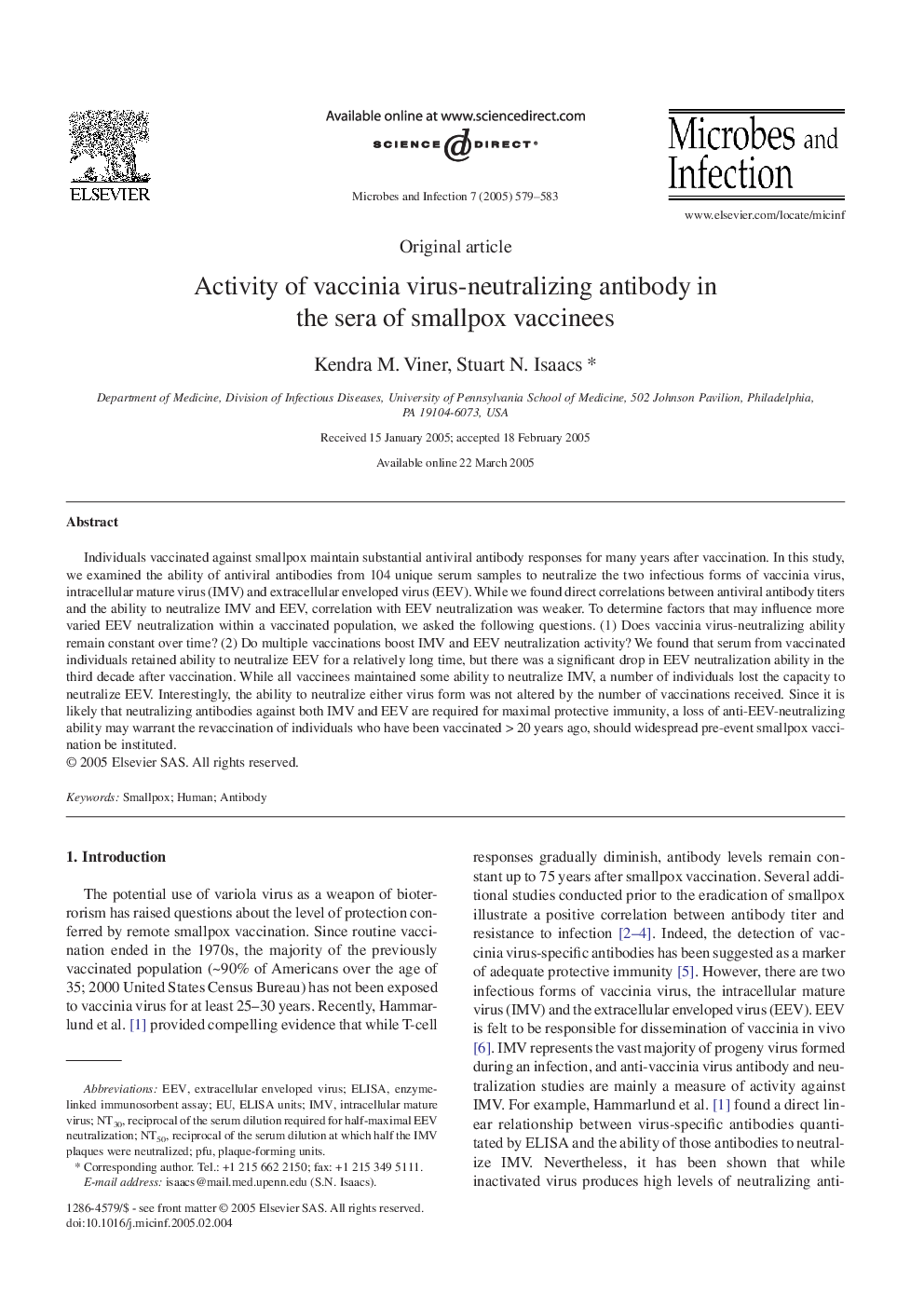| Article ID | Journal | Published Year | Pages | File Type |
|---|---|---|---|---|
| 9282932 | Microbes and Infection | 2005 | 5 Pages |
Abstract
Individuals vaccinated against smallpox maintain substantial antiviral antibody responses for many years after vaccination. In this study, we examined the ability of antiviral antibodies from 104 unique serum samples to neutralize the two infectious forms of vaccinia virus, intracellular mature virus (IMV) and extracellular enveloped virus (EEV). While we found direct correlations between antiviral antibody titers and the ability to neutralize IMV and EEV, correlation with EEV neutralization was weaker. To determine factors that may influence more varied EEV neutralization within a vaccinated population, we asked the following questions. (1) Does vaccinia virus-neutralizing ability remain constant over time? (2) Do multiple vaccinations boost IMV and EEV neutralization activity? We found that serum from vaccinated individuals retained ability to neutralize EEV for a relatively long time, but there was a significant drop in EEV neutralization ability in the third decade after vaccination. While all vaccinees maintained some ability to neutralize IMV, a number of individuals lost the capacity to neutralize EEV. Interestingly, the ability to neutralize either virus form was not altered by the number of vaccinations received. Since it is likely that neutralizing antibodies against both IMV and EEV are required for maximal protective immunity, a loss of anti-EEV-neutralizing ability may warrant the revaccination of individuals who have been vaccinated >Â 20Â years ago, should widespread pre-event smallpox vaccination be instituted.
Keywords
Related Topics
Life Sciences
Immunology and Microbiology
Immunology
Authors
Kendra M. Viner, Stuart N. Isaacs,
